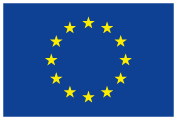The city could be otherwise is both a statement and question wrapped in one. As a statement it prompts alternatives that challenge the hegemonies, or mental blockages, that have led to accepting situations of gross economic inequality, ecological degradation and social crises. As a question, it queries our agency as citizens: to what extent can we give shape to the ‘otherwise’—are we passive observers or active agents for change? For designers and artists, it prompts a reflection on the state of socially engaged theory and practice in urban contexts. The Open School aims at a creative re-thinking of the city, trading practices and ideas, peers-pushing-peers in a place of learning and experimentation through dialogue and action. Participants will be encouraged to take different roles and stances, questioning if and how the city can be otherwise.
The city has increasingly become the battleground for neoliberal forces driving the commodification of social life and the expansion of speculative instruments into all possible arenas. Urban governance has increasingly turned towards participatory means—bringing new cultural forces such as art and design within processes of decision-making under the pretext of ‘deepening democracy’. However, critical perspectives stress that this expanded engagement is not fomenting radical change but rather replacing critical debate and exchange with a consensually established frame; in essence evacuating the political from urban decision making. According to Zizek [1], this ideological closure ‘takes the precise form of a mental block’, which impedes one’s ability to imagine a fundamental social change, in the interest of ‘realistic’ or ‘mature’ attitudes. Without assuming a critical position to challenge this mental block, artists and designers, warn Palmas and von Busch [2], are very much at risk of becoming collaborateurs within this consensual frame in collusion with the power and political agendas of the elites, thus betraying their initial interests and those of their peers.
TRADERS Open school challenges this consensual frame and mental blockage by focusing on how the city can be ‘otherwise’: broad speculative thinking grounded in concrete action. We don’t aim to give an answer to such questions, nor to give general solutions for the city, but rather to problematize it and, by doing so, to test different approaches. We position the school within a broad idealism, convinced that sooner or later, the city will be otherwise.
_____________


